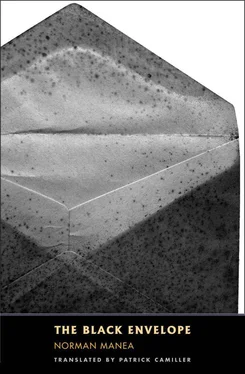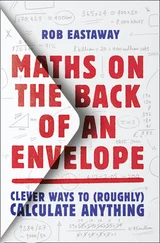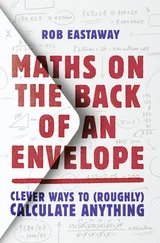He stopped in front of the Scampolo store, intending to enter but then giving up the idea. He headed listlessly for the bus stop.
COMRADE OREST,
As planned, I went to the reception at Central Army Headquarters. Modest food, rushed service. I wasn’t too keen on the guys’ mugs there, I have to say. The Source showed, in fact, but it didn’t cheer me up. The engineer has good judgment, I must admit, but also a way of looking down on things from on high. He’s not plugged into details, I know. And he’s too evasive in anything to do with Narcissus. On the other hand, I liked his theory about paternalism. A basic human need — we both agreed. Guidance, order, stability, continuity. Many disasters of the modern world are, I know, a result of defying these needs. I know it well from my own life. When my uncle went through those investigations linked to his liberal past, I was also subjected to parallel hardships. On the face of it, the charges against him had no bearing on me. But my connections with the man who had become my father were already irreplaceable. So it was not unjust for me to be implicated in something with which, in reality, I had nothing to do. While he was in prison, things weren’t easy for me either, as you know. But I didn’t complain. And when the time came, I was prepared to do for him what I was asked to do, as you know. He was the focus of the whole of my unstable existence. The Source was also right so all those who pretend to be innocent only want to come to power themselves. I know that. It’s not a question of ideals and principles. Power, power— that’s what they want. And so it becomes important to guide, monitor, and protect the lives of our poor confused fellow citizens. I do it, too, in my modest functions and with the modest means at my disposal. Brilliantly, if I dare say so myself. That is: correctly, discreetly, in good faith. That’s also why I prolonged my conversation with the engineer, although he didn’t have a lot to offer. As I said, the Source wasn’t in great form at all. More interesting, perhaps, would have been the classic theme: la femme. But you told me not to get into that. Anyway, we’re seeing each other again in a fortnight, at the football match with Italy. Tickets were sold out long ago, so the engineer couldn’t resist the temptation of being given one.
THIS TIME DOMINIC WASdetermined to put little Marga in his place: I don’t need your Irina! Stop playing the pimp: I’ve lost the patience for cuddling, unless you’re prepared to accept other motives as well! The whole thing makes me puke, Doctor. I’ve had all I can take of your charitable tricks.
In the rear of the confessional was always Marga the professional, with his exercises in casuistry and therapy and ergo-psychotherapy: subterfuges, exotic spices! Nonsense, Father Marga. I’m the adolescent of long ago, immature and incurable, the hesitancy and the excess, trembling and secrecy. The intensity, Doctor, the intensity! Hypnosis, vertigo, on the bicycle saddle, on the back of the fairy-tale charger.
Whistling sorrows and face-pulling and bombshells, that’s our answer! He will fling the truth in the face of the little Hippocrates, with all his stinking little secrets. Without any shame he’ll do it, good and proper. Let Goody-Goody cover his ears and eyes; let him be struck dumb; let him learn a lesson for once.
The moment had come. Dominic was finally determined to bare himself before the friend of the family, who thought he was his friend as well. Determined, in front of the consulting-room door. Anatol Dominic Vancea Voinov was in front of the cabinet of mystification, determined to speak. He had come straight to the hospital, straight to the consulting room. To clear everything up at last: the removal from teaching, how he had escaped and what had followed, his youth, the schoolboy cyclist, the major’s wife, the Model Association and the heroic photographer Tavi, the Hotel Tranzit informers, Argentina, absolutely everything. He had hurried there so as not to have time to change his mind. He was determined and prepared: he was in front of the door.
He had absentmindedly passed by those who were anxiously sitting on a bench in the waiting room. Quick: avoid any questions, avoid the danger of being lynched for jumping the queue. He also passed assistant Ortansa, who kept shouting: Where’s your card, sir, who do you want to see, wait your turn, the doctor’s busy, very busy, shouted little Mrs. Teodosiu, there are no urgent consultations, everyone waits his turn, no exceptions, that’s how it is in a hospital, as in death, no exceptions; he also passed the madwoman, on and on. He had already pushed the door handle: he did not look left right or behind, he went in, yes, he went in.
In the consulting room was a sturdy gentleman in a white smock. The shorn head of an adult recruit.
“What do you want?”
“I’m looking for Dr. Marga.”
The barracks-room head is wedged in a cup of coffee. His lips noisily slurp once, twice, nine times. He finally looks up again.
“Who did you say you was looking for?”
The visitor, unsure whether to reply in the same bumbling way, mentally counts the buttons on the starched white smock.
“Who was me looking for? For Gerbert. Saint Gerbert. I’m looking for Saint Gerbert of Aurillac. Pope Sylvester. Or Otto. Emperor Otto III.”
The boxer raised his eyebrows, surprised but not all that surprised. He was used to anything. So he smiled, no more and no less.
“In a moment. He’s just coming.”
He pointed to a second cup of coffee, still full, at the other end of the table. The cup was steaming: that is, Saint Gerbert Marga was steaming and would soon appear from the magic cup, that was what the cranky doctor meant to say, fed up with the eccentricities of his patients. The coffee awaited the absent one, so Papa Goody-Goody would soon be back among us. The boxer had even vaguely gestured toward the chair by the door. Perhaps he was, perhaps he wasn’t inviting the patient to take a seat. Dominic remained standing by the door for the eternity of a quarter of an hour. He lost the desire to chatter, to quarrel, to do anything. He was about to leave when Marga appeared. Plump and jolly, excitedly fluttering the tails of his smock. A pale face, however, made shadowy by a thin beard that continued his sideboards in a kind of black jaw bandage. He had blown into the room without noticing anybody. He sat down, took the cup, sipped from it, put it back in its place.
“Someone has been waiting for you, as you can see,” muttered the tenor from behind the newspaper he was reading.
“You look like a romantic poet,” Tolea attacked. “Like the Decembrists on the eve of arrest, or B˘alcescu in Palermo. Like Pushkin before the duel.”
Marga turned his glasses and his sound eye toward the door.
“Oh, what a surprise! To find you here. You’ve caught me at rather a— Sit down, Tolea. Commissions and committees, what can I do? We’ll be through soon: there’s not much left.”
He stood up and brought the chair from the door next to his own.
“Let me introduce you. Florin, this is an old friend, Professor Vancea. My colleague, Dr. Florin Dinu.”
Dr. Florin Dinu nodded and the professor sat down.
“Yes, that’s right, make yourself comfortable. You’ll be able to see us going about our business. Then I’ll be free for a chat. It won’t last long. We’re nearly finished, aren’t we, Florin?”
Florin agreed with a bow of the head. Their dumpy assistant appeared, with the voice and mouth of an angel.
“Did you enjoy the coffee, Doctor? Sweet and strong, as you like it. There’s none around anywhere, you know. Not even on the black market; not even if you pay a month’s wages for a kilo. What a blessing these patients are, these poor wretches, because they dig it up from under the ground, just so they can offer some to the doctor.”
Читать дальше












